Founded in 2022, Justice for the People was created to provide unique high impact legal services through a grassroots organizing lens, better known as Movement Lawyering. Our legal strategies seek to maintain affordable housing, improve housing quality, and prevent eviction and homelessness by broadly enforcing hard-fought tenant protections designed to combat predatory, profit driven strategies.
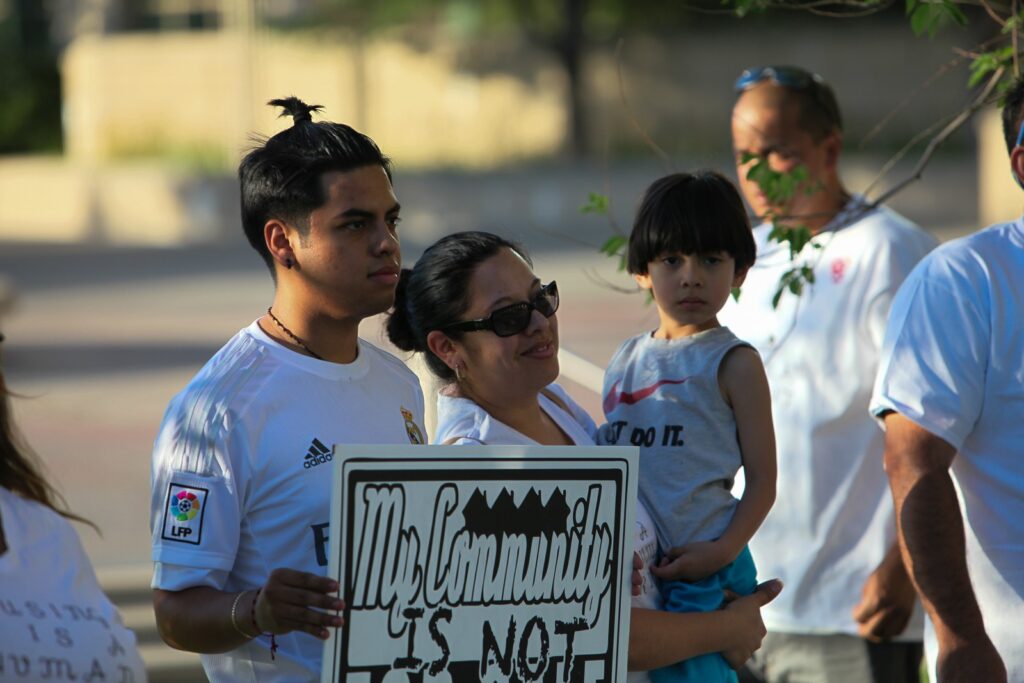
Justice for the People Legal Center is a non-profit movement law firm that is dedicated to fighting for transformative justice, liberation and collective self-determination with and for people who currently and historically have endured violence, harm and trauma by the U.S. and other colonial justice systems. Our vision of transformative justice is to democratize, decolonize and liberate land, housing and wealth towards a solidarity economy. We conduct education and outreach to organize and build community alongside impact litigation and enforcement. All of our work embodies grassroots organizing strategies, values and principles.
Movement lawyering is fundamentally different from mainstream direct legal services in that it is used as an organizing tool that extends far beyond one case or policy. The definition of movement lawyering we use comes from the organization Law for Black Lives: “Movement lawyering means taking direction from directly impacted communities and from organizers, as opposed to imposing our leadership or priorities as legal advocates. It means building the power of the people, not the power of the law..”
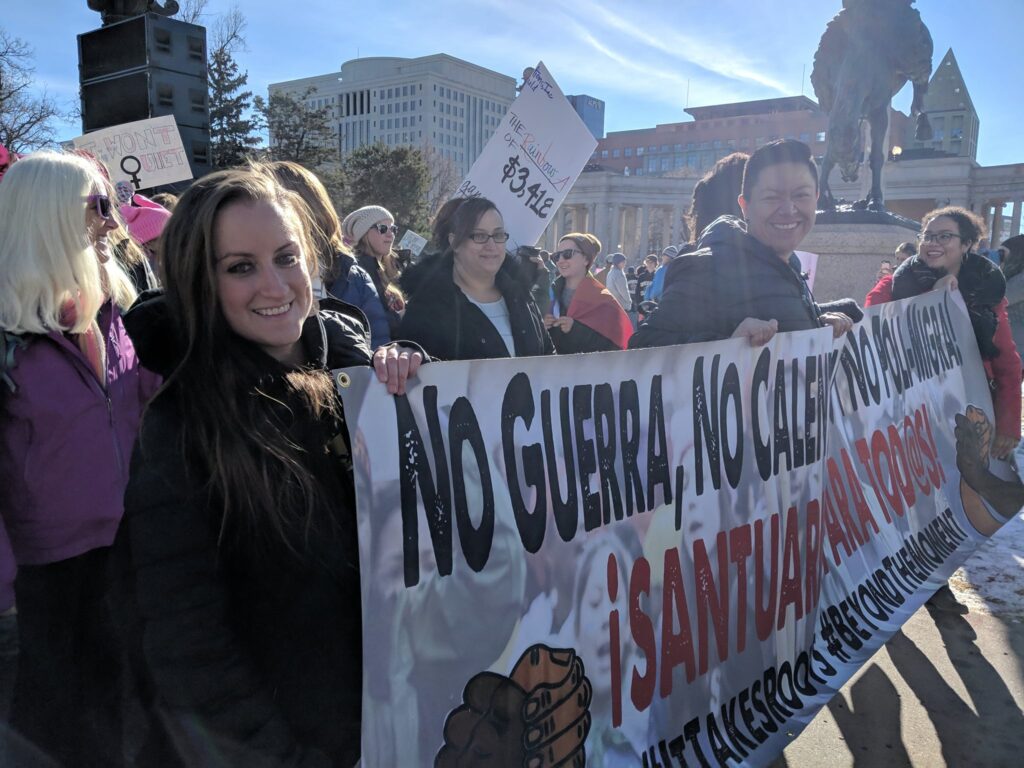
Renters first identify ever-increasing rents, driven by profiteering landlords and facilitated by a statewide ban on rent control, and, secondly, substandard housing maintenance and quality stemming from those same rent-increasing landlords refusing to invest in maintenance and infrastructure.
Almost 2 years after the very last mobile home park in the Denver neighborhood of Westwood went up for sale, residents and partners are thrilled to share that they are closing on the sale, meaning the park is on track to be the first community owned park in Denver.
The work began in 2022 when residents contacted 9to5 Colorado, a grassroots women’s organization that had been organizing mobile home parks since 2014, and JFP, and the work to purchase the park began. We were tasked with raising $11.5 million to purchase the park. In May 2023, Sharing Connexion, a non-profit that among other things has a real-estate rescue program, voted to become the interim owner of the park. Residents, 9to5 Colorado, Justice for the People Legal Center, and Sharing Connexion worked to raise the capital needed to purchase the park. The owner of Montevista, signed a letter of intent from a “wallstreet” company, meaning the Opportunity to Purchase clock began to tick and residents were given 120 days to make an offer. Residents were successful in meeting the deadline by mid-August and were given another 120 days to come up with the remaining financing needed. While the city of Denver was originally a fairly hostile municipality toward mobile homes, after residents organized in different cities across Colorado for 10 years and brought public attention to the issue, Denver is now one of the biggest lenders for the residents in this transition.
After many ups and downs, timeline extensions, and close calls of not meeting deadlines, Sharing Connexion finally closed the sale on the park on April 30th, 2024. Sharing Connexion will be the interim owner from 1-3 years or until the residents are able to manage and operate the park on their own. While there is a long road ahead to make sure that residents have what they need to take on this enormous project, this is a historical moment for the residents of Montevista and for the community of Denver. This is the very first park to come under contract to eventually become community owned in the history of the city, and we hope this will set an example for other residents across the state that dream about owning the land underneath their homes.
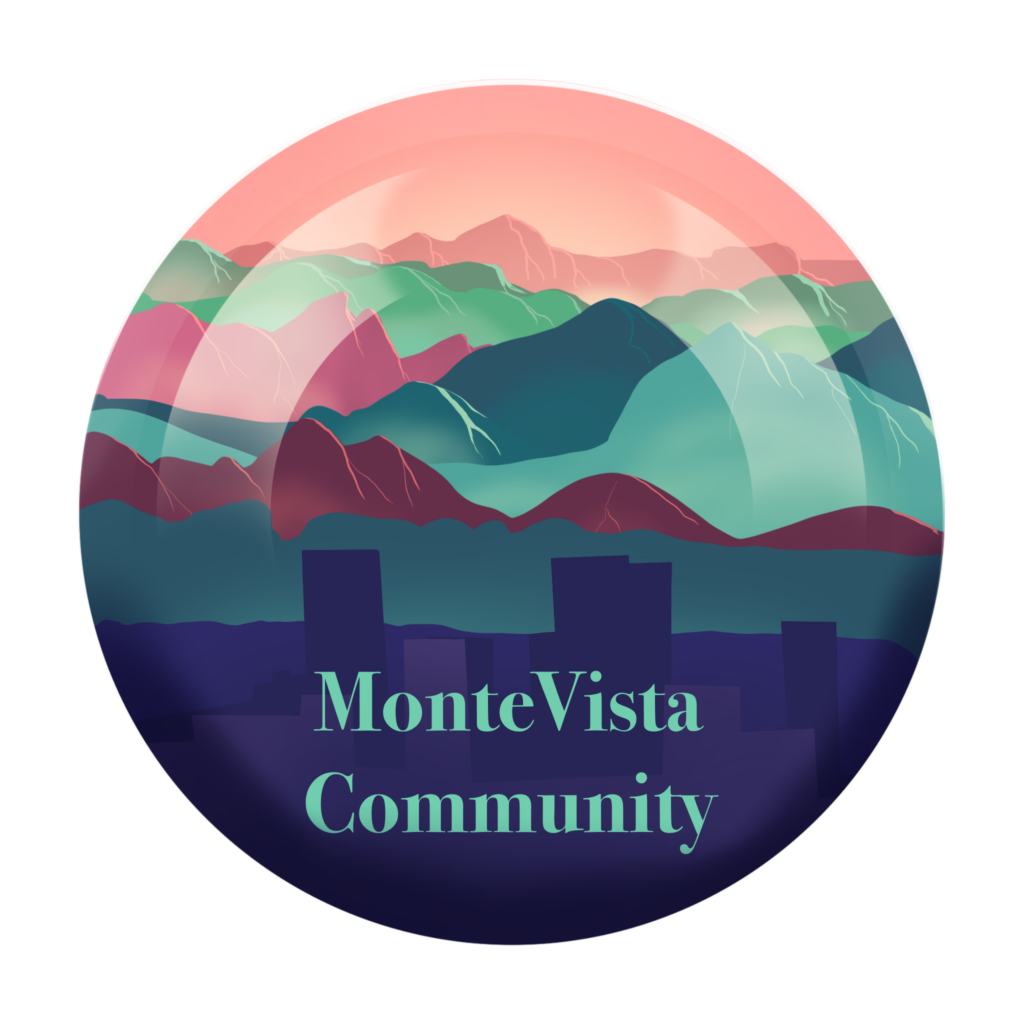
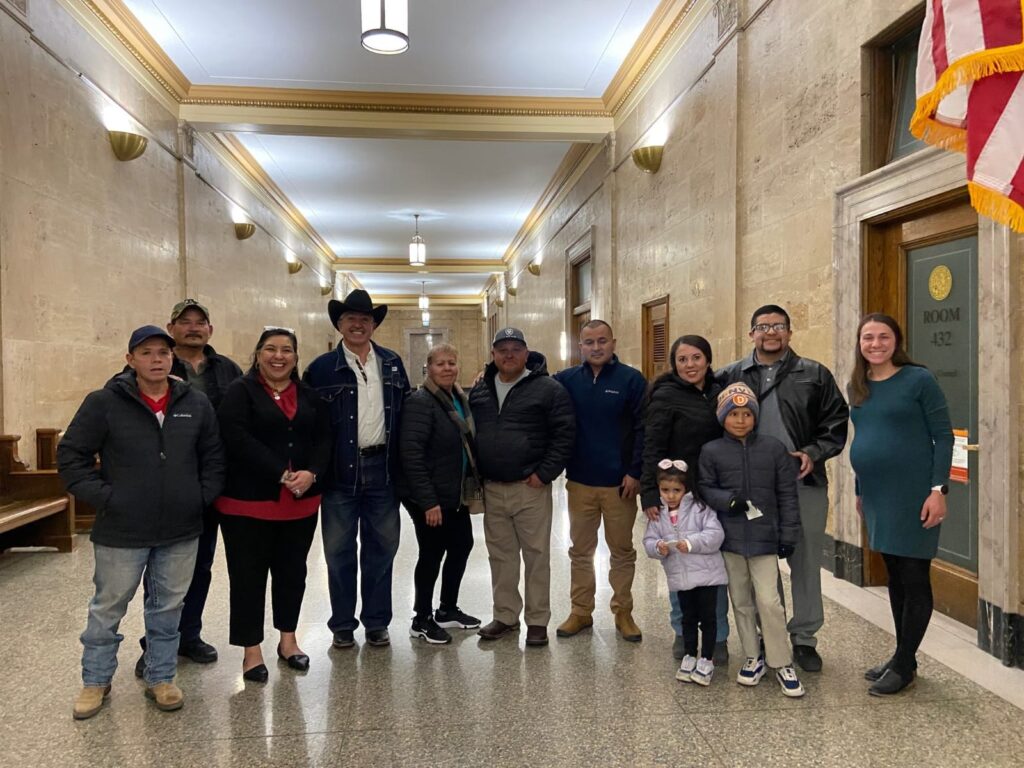
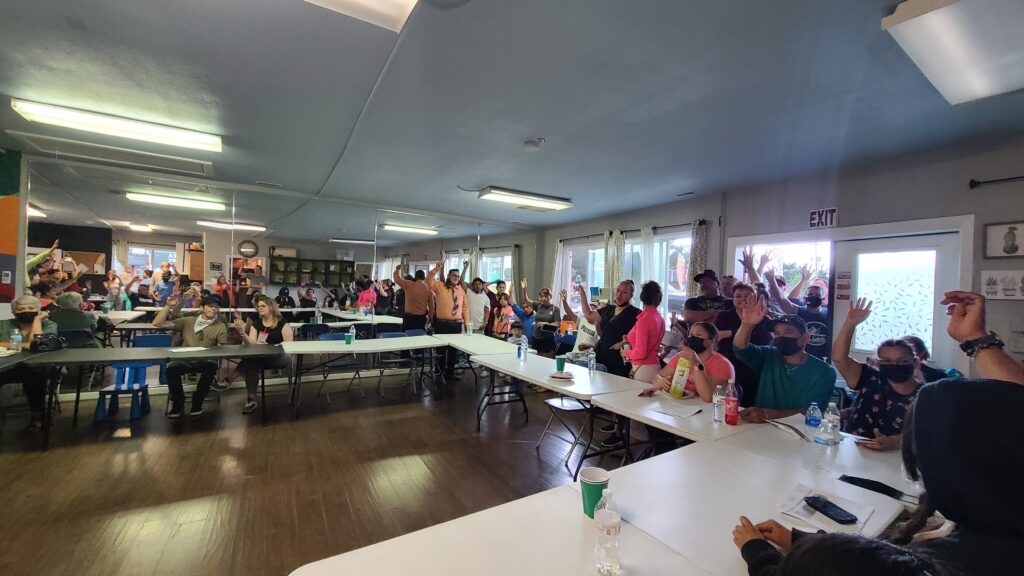
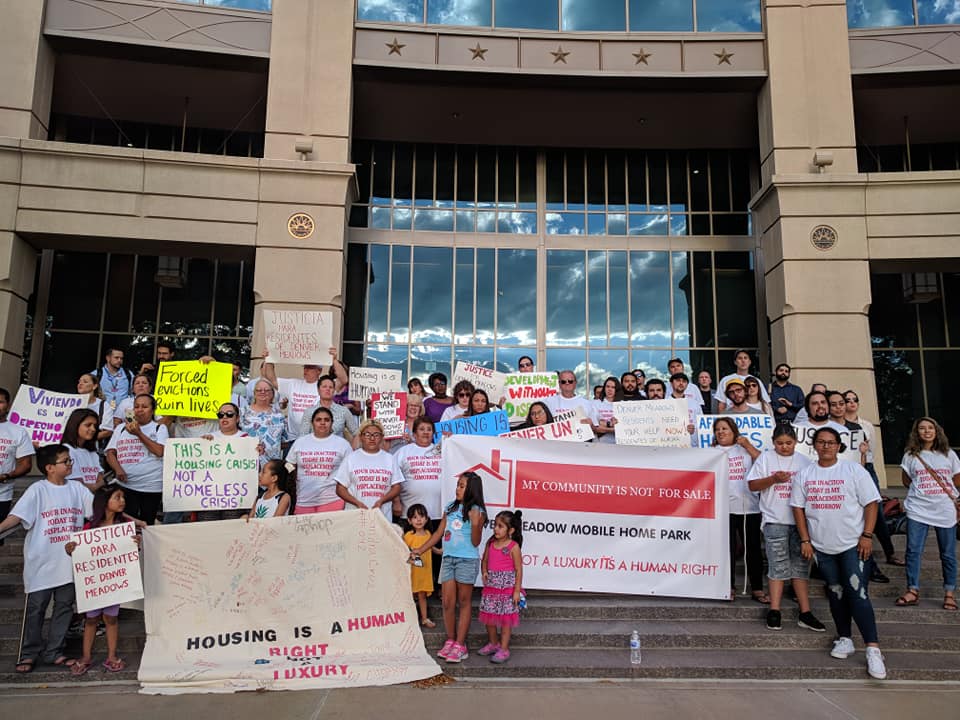
These tenants already struggle to afford basic necessities such as food, clothing, transportation, and medical care. Any financial shock or sudden expense can quickly place them at risk of eviction, nevermind the American myth-of-a-dream of saving for a better future for themselves or their family.
According to data collected between May 28 and June 24, 2024
of Colorado adults couldn’t pay their entire energy bill in the last 12 months
couldn’t afford a normal household expense within the last 7 days
were not current on rent or mortgage and likely to experience eviction or foreclosure in the next two months
While we are in fact a legal center, we believe in creating a world where lawyers and paid organizers are not needed and instead, residents are able to organize, advocate, and assert their rights on their own. Lawsuits can take years and most of the time, do not provide immediate relief. That is why we firmly believe that the most important thing you can do is ORGANIZE.
The metaphor we use is that legal strategies are the shield, while organizing strategies are the sword. If we only use legal strategies, we will always be on the defense and will never gain any ground. If you and other people in your community are looking to form a tenant union or mobile home association, we have resources you can refer to and we also partner with other grassroots organizations to partner with us on this work.
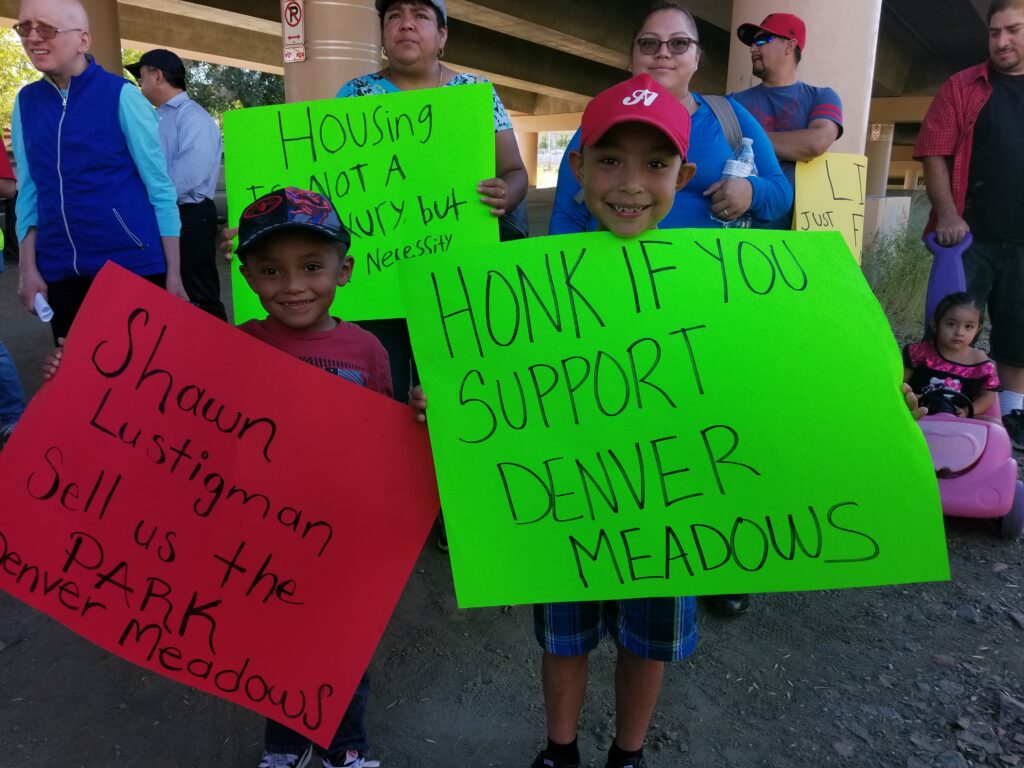
This guidebook, created by staff and students from CU Law legal clinics, is designed for Colorado mobile homeowners who want to organize within their community. It provides step-by-step suggestions for bringing community members together so that they can support each other in improving their mobile home park community. It contains examples of key legal documents that a mobile home community will need in order to create a voluntary, nonprofit, homeowners’ association. It also includes a checklist of annual activities that a voluntary homeowners’ association should undertake. English and Spanish versions are provided.
This is a series of trainings created by Rooted & Ready and Right to the City Alliance that can help you learn the tools you need to organize your community and prevent displacement.
As we move the needle towards a solidarity economy and take more land and housing off the speculative market indefinitely, it’s important to understand the role of social housing and what it looks like in practice. Learn more from this report created by our fellow grassroots housing partners in California.
As head of the organization, Dre is intentionally a non-attorney community organizer to ensure grassroots organizing leads all of the work we do.
Dre was politicized by time spent in her mother country of Ecuador growing up, and learned about Latin American activism but didn’t have a word for organizing until interning with a labor union led by women in the Dominican Republic through the Workers’ Rights Consortium and United Students Against Sweatshops. After college, she worked at a Spanish-language immersion childcare center in Boston and organized workers to push for benefits and paid overtime. Her paid organizing work began at 9to5 as a transit organizer and her work evolved into building the foundation for 9to5’s housing justice movement work. In 2016, she co-founded Colorado Homes For All, which is based on the national housing justice movement led by Right to the City Alliance. After 9 years at 9to5 Colorado and as the Executive Director for 4 of those years, she transitioned into her new organization JFP. Her leadership style has been largely shaped by her experience as a Power 50 cohort fellow, Transformative Leadership for Change fellow, and more recently as a Common Future Accelerator Fellow.
Jason and his family were housing insecure for a portion of his youth, particularly after his disabled mother lost public housing due to administrative burdens designed to achieve exactly this result, which left her alternating unhoused for years . He became an attorney to gain a skillset that he could use to help pursue positive change advocating for those at a structural disadvantage in our society, including people who grew up in or experienced similar circumstances to his family. He developed a practice focused on representing residential tenants in Colorado and advising tenant communities, organizers, and associations. Jason’s practice in this arena has been furthered substantially by his work with 9to5 Colorado’s Housing Justice Program. That relationship started when Jason became involved with 9to5 Colorado organizers working in the Denver Meadows Mobile Home Park community, a community whose residents were facing mass displacement in the face of the Park’s closure. Jason’s advocacy led to the remaining residents obtaining significantly more time in their homes and community prior to the closure of the Park, and significant funds to assist with their relocation by both the Park’s ownership and the City of Aurora. Jason became 9to5 Colorado’s Housing Justice Program’s main attorney to provide eviction defense services. Through that partnership, Jason has represented hundreds of tenants faced with eviction and housing insecurity in Colorado and provided hundreds of hours of know-your-rights trainings to tenants, tenant-organizers, and tenant associations. Jason has also filed numerous affirmative claims and counterclaims on behalf of Colorado renters – including class action claims – concerning their rights under Colorado law. These claims push back on practices that detrimentally impact the housing security of hundreds of thousands of Colorado renters.
Cameron Netherland is a dedicated tenants’ rights attorney whose work includes pursuing class action claims against large corporate landlords and mobile home park owners, eviction defense, aiding in tenant organizing efforts, assisting mobile home park residents to purchase their parks, and working to improve legal protections for tenants in Colorado. Cameron became an attorney because he cannot tolerate people suffering in the name of profit and wanted to do whatever he could to alleviate that harm by fighting against the corporate greed inflicting it against the most vulnerable members of our community.
This passion focused on housing work in particular while Cameron was in law school, where he worked directly with mobile home park residents to protect their communities and pass tenant-protective updates to the Mobile Home Park Act. During this time he was also a founding member of Boulder’s No Eviction Without Representation campaign – which created a right to counsel for tenants in eviction cases in the city. Before working with Justice for the People, Cameron worked as a law clerk to the Honorable J. Keith Collins in Colorado’s 20th Judicial District. Cameron received his bachelor’s in Political Science from Texas A&M University and his J.D. from the University of Colorado Law School.
Gia Nyhuis was born and raised in Superior, Colorado. After graduating from the University of Richmond in 2017, she served as a volunteer English teacher in Quito, Ecuador through the program WorldTeach. Gia graduated from the University of Virginia School of Law in 2021. At UVA, she was a fellow in the Law and Public Service Program and Co-Director of the Migrant Farmworker Project. After law school, Gia moved back to Colorado where she was a public defender. Gia then worked as a housing attorney at the Community Economic Defense Project defending tenants and mobile homeowners against evictions and providing Know Your Rights trainings to mobile home communities. In her free time, Gia enjoys running, reading and traveling.
As head of the organization, Dre is intentionally a non-attorney community organizer to ensure grassroots organizing leads all of the work we do.
Jason and his family were housing insecure for a portion of his youth, particularly after his disabled mother lost public housing due to administrative burdens designed to achieve exactly this result, which left her alternating unhoused for years.
Cameron Netherland is a dedicated tenants’ rights attorney whose work includes pursuing class action claims against large corporate landlords and mobile home park owners, eviction defense, aiding in tenant organizing efforts, assisting mobile home park residents to purchase their parks, and working to improve legal protections for tenants in Colorado.
Gia Nyhuis was born and raised in Superior, Colorado. After graduating from the University of Richmond in 2017, she served as a volunteer English teacher in Quito, Ecuador through the program WorldTeach. Gia graduated from the University of Virginia School of Law in 2021. At UVA, she was a fellow in the Law and Public Service Program and Co-Director of the Migrant Farmworker Project.
